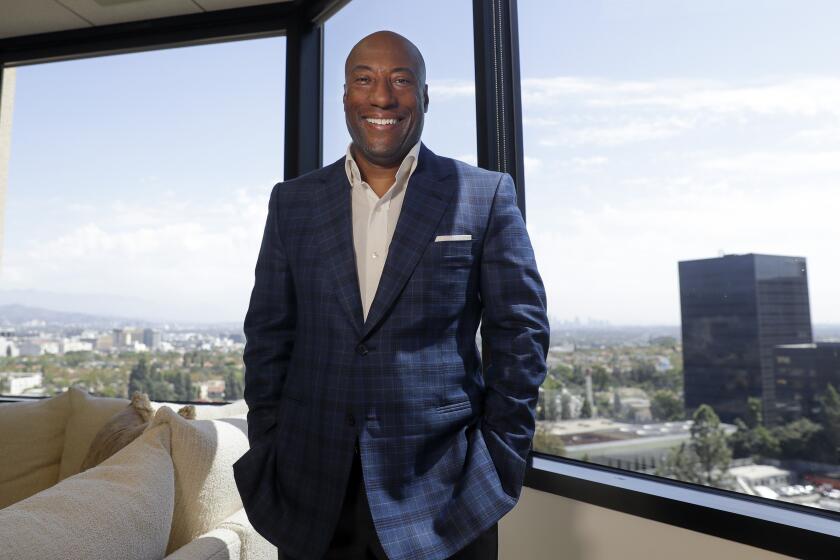Will Home-Buying Splurge Continue?
- Share via
Is the nation’s biggest home-buying binge going to run its course this summer--or will the ownership orgy continue to push new- and existing-house prices even higher?
Washington realtor Earl Farr, who has professionally participated in five major ups and downs of this always active capital residential market, said recently that he never saw expensive houses sell faster and at escalating prices more than in recent months.
He said his youngest son had to offer more than the asking price to get the half-million-dollar house he wanted. Also, that son and wife sold their existing house at a 55% profit after only 18 months of occupancy.
That bespeaks the remarkable housing affluence in the capital area, where most new subdivision single-family houses are priced in excess of $150,000. And some observers might make that bottom figure more like $175,000--if you want “something new, single and even moderately attractive.”
But realtor-developer Angelo Puglisi, a native Washingtonian who has accumulated a modest fortune in realty holdings in the past 30 years, said: “Everything Earl Farr and others say about the hot residential market is true--but I think the roller coaster has hit its zenith. Even the recent modest upturn in mortgage rates has knocked a lot of prospective purchasers out of the buying box.
“What’s more, I have to believe that most of that pent-up buying demand has been satisfied. As mortgage rates hit 10%, you’ll see some softness in the purchases of both new and existing houses.”
Robert E. Higbie, a youngish (under 60) federal retiree, and his wife, Evelyn, are part of the moderately affluent housing demand. They’ve been looking for a larger, more expensive house for 18 months.
They can afford to take their time and be choosy because they are comfortably housed in a neighborhood they like. But the Higbies have been bitten by the new-house bug, and they really want a place with a larger kitchen and more entertaining space. Yet, their move-up motivation is now in recession.
“We know we can still get an incredible price for our originally (they bought it 17 years ago) $27,000 house that is now 40 years old. But we’ve seen the prices of desirable new houses go right through the roof while we’ve been looking and deciding.
“Just two weeks ago, we made an offer on a $175,000, nice new house in a small suburb about 40 miles north of the White House. Well, someone offered more and got that house.
“Just recently I reviewed closing costs and realty commissions. It could cost us almost $10,000 to sell our present house, while closing costs on the next house might be even more than that. It seems to me that’s too much just for the privilege of moving up the housing ladder.”
Meanwhile, Housing Data Reports reported recently that “buying fever has accelerated sharply month-to-month since January,” adding that sales of new houses priced in the $200,000 range have been exceptionally strong in the District of Columbia area.
Additionally, even though the median price of existing houses has nearly doubled in the last nine years, according to realtor statistics, it might be more important that median family income has also nearly doubled.
But the monthly payments in terms of percentage of total income have increased only slightly in the same period, and that payment as percent of income has actually decreased sharply since the record high mortgage rates of 1982.
So, maybe, despite the clouds on the mortgage and inflation horizons, chief economist John Tuccillo of the National Assn. of Realtors could be close to the target with his view: “The numbers suggest that 1987 will be another favorable year for real estate.” But his recent statement also presupposed that “mortgage interest rates will continue to trend downward.”
If the recent mortgage rate upsurge continues, Tuccillo, realtors, and home builders could be yearning for the good old days of early 1987 before the year is out.
More to Read
Inside the business of entertainment
The Wide Shot brings you news, analysis and insights on everything from streaming wars to production — and what it all means for the future.
You may occasionally receive promotional content from the Los Angeles Times.










